Last Updated on 3 months
Discover the Best All-Weather Tire Options for Optimal Performance
Finding the perfect set of tires that can handle various weather conditions is crucial for vehicle performance, safety, and driver comfort. The best all-weather tires bridge the gap between all-season and dedicated winter tires, offering top-notch tire performance all year. In this article, we’ll review some of the top all-weather tire brands and provide you with the information needed to make an informed purchasing decision.
Key Takeaways
- Top contenders for best all-weather tires include Michelin Pilot Sport All Season 4, Continental ExtremeContact DWS 06 Plus, and Bridgestone Potenza RE980AS+.
- All-weather tires provide superior grip and performance in various driving conditions, such as wet, dry, and snowy roads.
- Critical features of all-weather tires include advanced tread patterns, siping technology, and versatility in different temperatures.
- Top all-weather tire brands like Michelin and Continental have built their reputation on high-quality manufacturing standards and advanced tire technologies.
- Investing in quality all-weather tires enhances vehicle performance, safety, and comfort while improving fuel economy.
Understanding the Versatility of All-Weather Tires
All-weather tires have become famous for many drivers due to their unique ability to provide optimal grip and performance in various driving conditions, including wet, dry, and snowy roads. One of the most significant all-weather tire benefits is their versatility. It eliminates the need for separate sets of tires for different seasons and saves drivers the hassle of changing tires annually. The tires adapt to various weather changes and are suitable for locations with moderate winter weather, representing a versatile option for drivers.
With all-weather tires, drivers can enjoy the convenience of year-round functionality, as these tires are designed to perform well in both wet and dry conditions, as well as provide sufficient snow traction.
Advancements in tire technology have contributed to developing all-weather tires that can meet the challenge of various driving conditions. Some of the essential features found in these tires include:
- Advanced tread patterns for efficient water evacuation and improved grip on different surfaces.
- Flexible rubber compounds that remain pliable in a wide range of temperatures, ensuring consistent traction as temperatures fluctuate.
- Siping technology for enhanced snow and ice traction.
Beyond their impressive performance capabilities, all-weather tires also offer drivers several other benefits, such as:
| Benefit | Description |
|---|---|
| Cost-Effectiveness | All-weather tires eliminate the need for multiple sets of tires, saving drivers money on purchasing, storing, and maintaining separate seasonal tire sets. |
| Convenience | Without the need to change tires seasonally, drivers can enjoy a hassle-free experience without worrying about their tires’ performance across the changing calendar. |
| Environmental Sustainability | The ability of all-weather tires to perform well in various conditions means fewer discarded tires, reducing waste and environmental impact. |
In conclusion, all-weather tires are an excellent choice for drivers who want a versatile, cost-effective solution for driving in various conditions throughout the year. These tires offer a balance of performance and adaptability that few other tire options can match, making them a valuable investment for those looking to improve their driving experience and safety.
Maximizing Safety and Performance with All-Weather Tires
All-weather tires are designed with safety and performance as their top priorities, delivering reliable traction and stability in various roadway conditions, including dry, wet, and light snow and ice. Drivers can enhance their safety and confidence by investing in quality all-weather tires, particularly in unpredictable winter conditions.
Critical features of all-weather tires that contribute to maximizing safety and tire performance include:
- Advanced tread design for improved traction
- Durable rubber compounds for enhanced grip and longevity
- Efficient water evacuation to minimize hydroplaning risks
- Firm handling and responsive steering in changing conditions
While all-weather tires excel in most conditions, they do have their limitations. For example, they may not be ideal for heavy snow, severe winter weather, or extreme high-performance requirements. Nonetheless, their versatility and adaptability across diverse weather conditions make them a valuable investment for many drivers.
Investing in quality all-weather tires supports safety and bolsters driver confidence, especially in unpredictable winter conditions.
| All-Weather Tire Features | Benefits |
|---|---|
| Advanced tread design | Improved traction and grip on various road surfaces |
| Durable rubber compounds | Enhanced longevity and performance in fluctuating temperatures |
| Efficient water evacuation | Reduced risk of hydroplaning in wet conditions |
| Firm handling and responsive steering | Increased driver confidence and control in changing conditions |
In conclusion, all-weather tires provide a comprehensive solution for maximizing safety and tire performance across various driving conditions. By understanding the features and benefits of all-weather tires, drivers can make informed decisions that contribute to a safer and more enjoyable driving experience year-round.
Evaluating All-Weather vs All-Season Tires
When deciding between all-weather vs all-season tires, it’s essential to compare and contrast their distinct features and capabilities to determine the ideal option, considering one’s driving needs. The primary difference lies in their performance in snow and ice, where all-weather tires typically deliver superior traction and control.
Given the unique strengths of both tire types, let’s examine their performance across specific conditions using a tire comparison chart:
| Tire Type | Dry Performance | Wet Performance | Snow Performance | Ice Performance |
|---|---|---|---|---|
| All-Weather Tires | Good | Excellent | Very Good | Good |
| All-Season Tires | Very Good | Good | Good | Fair |
As shown above, all-weather tires perform better on snow and ice than all-season tires. This can be advantageous in regions with moderate snowfall, as drivers would not need to swap between different sets of tires based on seasonal changes.
For year-round versatility and improved snow and ice performance, all-weather tires are the more robust option.
It’s important to note that neither tire type is a one-size-fits-all solution, so drivers should base their decision on their specific geographical location and typical driving conditions. Ultimately, the choice between all-weather vs all-season tires should prioritize safety, performance, and suitability for the driver’s needs.
The Science Behind All-Weather Tire Tread Design
One of the most critical aspects of all-weather tires is the tread design that ensures year-round traction. Tread patterns, siping technology, and advanced rubber compounds provide optimal grip across varying temperatures and road conditions.
The Importance of Tread Patterns in Year-Round Traction
Tread patterns are deliberately engineered to provide substantial traction and handling in dry, wet, and snowy conditions. This offers a safe and stable driving experience regardless of the season. The careful arrangement and geometry of the grooves, channels, and sipes within the tread pattern help to maintain grip, especially during acceleration, braking, and cornering.
Siping and Grip: Ensuring Control in Wet Conditions
Siping technology improves control and stability in wet conditions by allowing the tire to disperse water more effectively. This reduces the risk of hydroplaning and enhances wet traction. Sipes are small slits and grooves made in the tire’s tread blocks, which help in gripping damp and icy surfaces and provide better stability during cornering and maneuvering.
Rubber Compounds: Flexibility for Temperature Fluctuations
The rubber compounds in all-weather tires are formulated to remain flexible in various temperatures, allowing for consistent performance even when temperatures drop. This contributes to better winter traction and overall stability. A tire’s rubber compound must maintain its elasticity for proper grip and handling. If the rubber hardens in cold temperatures, it will lose its ability to grip the road, reducing traction and handling performance.
“Selecting a tire with the right tread pattern, siping technology, and rubber compound can greatly affect your driving experience and safety in various road conditions.”
By understanding the science behind all-weather tire tread design, you can make an informed decision when choosing the best tires for your vehicle. Investing in tires with the appropriate tread patterns, siping technology, and rubber compounds ensures superior yearly performance, enhancing your safety and confidence on the road.
Top All-Weather Tire Brands to Consider
Choosing the right all-weather tire brand is crucial for ensuring optimal performance, comfort, and safety. When looking for the perfect set, consider the reputation and reliability of these top brands:
- Michelin: Known for their Pilot Sport All Season 4, which offers exceptional comfort and grip in various road conditions.
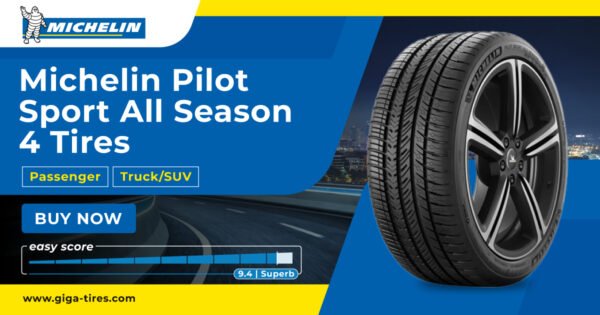
- Continental: The ExtremeContact DWS 06 Plus is highly praised for its outstanding traction in snow and challenging conditions.
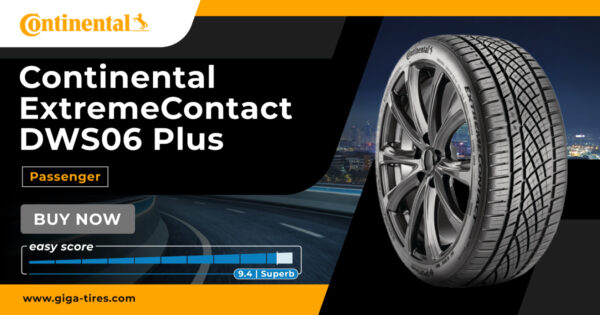
- General: The Altimax RT43 offers durable performance and is renowned for its longevity and affordability.
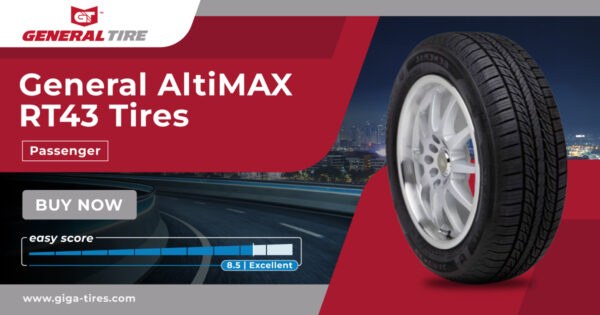
Assessing Brand Reputation and Reliability
Evaluating all-weather tire brands‘ reputation and reliability before investing in brand recognition, Michelin and Continental are globally acknowledged for their high-quality manufacturing standards and advanced tire technologies. They consistently produce top-performing tires that balance comfort, safety, and durability.
On the other hand, General represents a brand that offers reliable performance with a focus on longevity and value. While it may not share the same high-profile status as Michelin or Continental, its adherence to strict quality standards has earned it a loyal following of satisfied customers.
“Michelin and Continental tires have never let me down during harsh weather conditions. Sure, they might be slightly more expensive than some other brands, but I’m confident that the safety and performance they provide are worth the investment.” – Jane Doe, a satisfied customer.
In conclusion, carefully assessing the reputation and reliability of top all-weather tire brands will ensure that you make an informed decision and invest in tires that suit your driving needs and preferences. Prioritizing quality and performance will lead to a safer, more comfortable driving experience across all weather conditions.
The Benefits of Investing in Quality All-Weather Tires
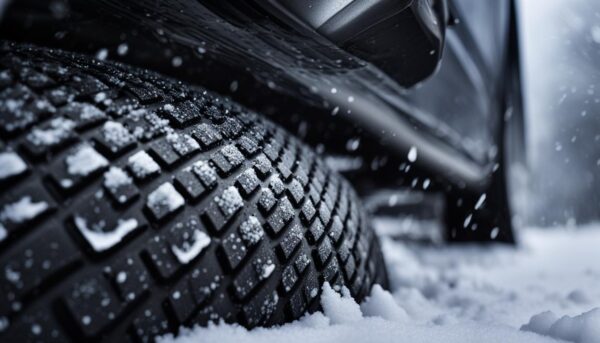
Investing in quality all-weather tires offers numerous benefits that enhance driving safety, performance, and convenience. Among these advantages are:
- Improved driving safety across diverse conditions
- Better fuel economy
- Superior handling and performance
- Greater comfort and peace of mind
Driving safety is a top priority for motorists, and investing in high-quality all-weather tires ensures optimal traction and control in various weather conditions, including wet, dry, and snowy surfaces. This increased stability and responsiveness significantly contribute to driver confidence and overall safety on the road.
Another essential aspect to consider when choosing all-weather tires is fuel economy. Quality all-weather tires are designed with advanced materials and tread patterns that minimize rolling resistance, improving fuel efficiency and reducing the vehicle’s environmental impact.
Investing in quality all-weather tires is a smart decision for any driver looking to enhance their driving experience and safety without compromising on performance or fuel efficiency.
Quality all-weather tires also offer superior handling and performance throughout the year. Their advanced tread designs and rubber compounds enable excellent grip on various road conditions, providing drivers with a more precise and enjoyable driving experience.
Lastly, a comfortable drive is essential for driver satisfaction, and higher-quality all-weather tires can contribute significantly to this crucial aspect. Better-built tires often reduce road noise and provide a smoother ride, increasing the overall comfort and peace of mind for drivers and passengers alike, especially in adverse weather conditions.
In conclusion, the benefits of investing in quality all-weather tires extend far beyond their obvious advantage of providing year-round suitability. They deliver enhanced safety, improved fuel economy, superior handling, and greater comfort, making them an ideal investment for drivers seeking the best driving experience possible.
All-Weather Tire Features that Enhance Driving Experience
Advanced features in all-weather tires can significantly enhance the driving experience by improving durability, reducing noise, and increasing fuel efficiency. This section will discuss innovative tire technologies contributing to a better driving experience.
Innovative Technologies for Enhanced Durability
Technologies like Sport+ technology in Continental tires or advanced tread compounds in Michelin tires contribute to improved durability and longer lifespan of all-weather tires. For instance, the Michelin Pilot Sport All Season 4 showcases its cutting-edge tread compound, made from its patented rubber mix, providing better grip and wear resistance. Similarly, the Continental ExtremeContact DWS 06 Plus features an innovative Sport+ technology that enhances grip, handling, and tread life.
Investing in tires with innovative technologies not only enhances durability but also saves you money in the long run.
Noise Reduction Techniques for a Comfortable Ride
Noise reduction features, such as optimized tread patterns, make for quieter tires, resulting in a more comfortable ride quality, mainly highway driving. For example, the Pirelli P Zero All Season Plus has an optimized pitch sequence that reduces tire noise, providing a smooth and relaxing ride. Another example is Goodyear’s ComfortEdge+ technology in their Assurance MaxLife tires, which aims to dampen road noise with fortified sidewalls and optimized tire design.
- Optimized pitch sequence
- ComfortEdge+ technology
- Advanced rubber compounds
Advanced Materials for Improved Fuel Economy
Using advanced materials in all-weather tires can lower rolling resistance, enhance fuel economy, and reduce environmental impact. For instance, Bridgestone’s Ecopia EP422 Plus tire utilizes their innovative NanoPro-Tech rubber compound, which reduces energy loss and minimizes rolling resistance, ultimately improving fuel efficiency and lowering carbon emissions. Another example is the Michelin CrossClimate 2, which features an asymmetric tread pattern and unique rubber compounds to optimize rolling resistance and help save on fuel costs.
Choose all-weather tires with advanced materials to enjoy better fuel economy and contribute to a cleaner environment.
| Tire Brand | Advanced Material | Benefit |
|---|---|---|
| Bridgestone | NanoPro-Tech rubber compound | Fuel efficiency |
| Michelin | Asymmetric tread and unique rubber compounds | Lower rolling resistance |
| Goodyear | ComfortEdge+ technology | Noise reduction |
By selecting all-weather tires with innovative technologies and advanced materials, you can enhance your driving experience with improved durability, reduced noise, and better fuel economy. The best all-weather tires contribute to a safer and more comfortable ride and support a greener future for everyone.
Consumer All-Weather Tire Reviews: Market Feedback
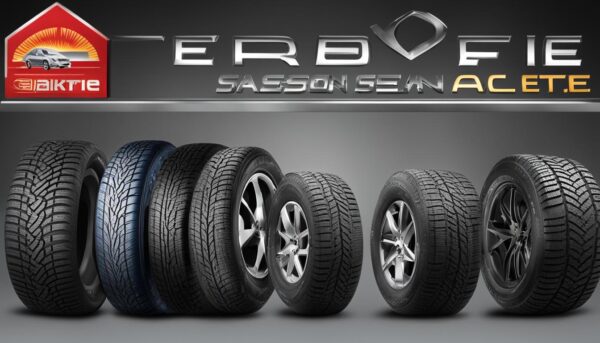
To provide prospective tire buyers with an unbiased account of tire performance, all-weather tire reviews play a crucial role in decision-making. These reviews garnered from various market feedback sources, amalgamate genuine consumer experiences. They can help drivers make informed decisions when choosing their following all-weather tires.
“I recently purchased Michelin’s CrossClimate 2 for my sedan, and I couldn’t be happier with their superior snow and ice performance. It definitely increased my confidence when driving in winter weather conditions.”
Riders frequently praise the Michelin CrossClimate 2 for its exceptional capabilities in navigating snow and ice. Its impressive handling in challenging winter conditions is a testament to Michelin’s innovative tire design and implementation of advanced technology.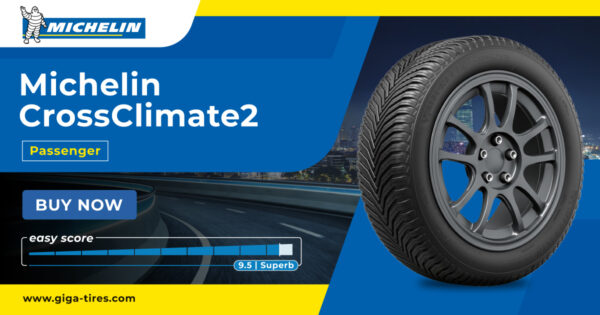
Another popular choice among consumers is the Continental ExtremeContact DWS, which showcases exceptional all-around weather handling. This tire is highly recommended for drivers seeking a reliable tire solution that excels in diverse driving conditions.
| Popular All-Weather Tire Models | Key Features | User Reviews |
|---|---|---|
| Michelin CrossClimate 2 | Excellent snow and ice performance | Positive feedback on handling and control in winter conditions |
| Continental ExtremeContact DWS | All-round handling in diverse weather conditions | Satisfied users praise the tire’s versatility and adaptability |
Ultimately, it is essential to note that personal experience and satisfaction are significant factors when selecting the right tire. By researching various all-weather tire reviews and feedback, drivers can gauge the quality and reliability of their chosen tire, compare their options, and gauge which tires best suit their long-term driving needs.
All-Weather Tire Durability and Longevity
Durability and longevity are significant considerations for all-weather tires. High treadwear ratings indicate a longer lifespan and reduced need for frequent replacements. This section will analyze treadwear ratings and mileage guarantees of popular all-weather tires, illustrating their durability and overall quality.
Analyzing Treadwear Ratings and Mileage Guarantees
Treadwear ratings and mileage guarantees, such as Michelin’s 45,000-mile half mileage for rear tires, indicate the expected durability and overall quality of all-weather tires. Regular maintenance and proper usage can further extend tire life. Look at some popular all-weather tire options and their respective treadwear ratings and mileage guarantees.
| Brand | Model | Treadwear Rating | Mileage Guarantee |
|---|---|---|---|
| Michelin | Pilot Sport All Season 4 | 500 | 45,000 miles half mileage for rear tires |
| Continental | ExtremeContact DWS 06 Plus | 560 | 50,000 miles |
| Bridgestone | Potenza RE980AS+ | 560 | 40,000 miles half mileage for rear tires |
| Pirelli | P Zero All Season Plus | 500 | 50,000 miles |
| General | Altimax RT43 | 700 | 75,000 miles |
Maintaining all-weather tires according to the manufacturer’s recommendations can improve their durability and longevity. This includes regular tire rotation, alignment, and proper inflation.
Investing in tires with high treadwear ratings and industry-leading mileage guarantees can lead to long-lasting performance and reduced costs associated with frequent tire replacements.
All-Weather Tire Performance in Extreme Conditions
All-weather tires are designed to deliver impressive performance across various driving conditions, including extreme weather. Their unique features, such as 3D sipes and V-shaped tread patterns, enhance their traction on snowy and icy roads. This section will discuss the performance of all-weather tires under these challenging conditions and offer insights on when dedicated winter tires might be necessary.
Several aspects of all-weather tire design contribute to their performance in extreme conditions. Among these are:
- 3D sipes: These tiny slits cut into the tread surface to enhance grip and traction on snow and ice, allowing the tire to hold onto the road surface securely.
- V-shaped tread patterns: The V-shape channels water and slush away from the tire, reducing the risk of hydroplaning and maintaining better contact with the road.
- Rubber compounds: All-weather tires utilize advanced rubber compounds that remain flexible in cold temperatures, ensuring consistent performance in winter conditions.
These features deliver optimal traction and handling, even in harsh winter conditions.
However, for very heavy snow and severe winter weather, dedicated winter tires may be more appropriate as they are specifically engineered to provide maximum traction and control in these extreme conditions.
In conclusion, all-weather tires are designed to perform well under various conditions, including extreme weather. With the help of 3D sipes, V-shaped tread patterns, and advanced rubber compounds, these tires provide impressive traction and control on snow and ice. However, drivers encountering severe winter conditions might consider opting for dedicated winter tires to ensure the highest safety and performance possible.
Conclusion
In this expert guide, we have explored the world of all-weather tires and their importance for ensuring optimal performance, safety, and comfort in various driving conditions. As we’ve seen, leading contenders like the Michelin Pilot Sport All Season 4 and Continental ExtremeContact DWS 06 Plus have demonstrated their ability to meet various needs and preferences, providing both versatility and peace of mind for drivers across the United States.
The selection process for the best all-weather tires involves a careful evaluation of critical criteria, including tire design, brand reputation, customer feedback, and, of course, driver safety. Balancing these factors will help you arrive at an informed decision, one that optimizes your driving experience while minimizing risk and maintaining control in diverse road conditions.
Ultimately, investing in high-quality, all-weather tires is essential to guaranteeing the reliability, performance, and satisfaction you seek. As a driver, taking the time to understand your unique requirements and choosing the right all-weather tires can enhance your vehicle’s capabilities and overall driving experience.
FAQ
What are the benefits of using all-weather tires?
All-weather tires offer a versatile driving experience, providing enhanced safety, improved fuel economy, and superior handling across diverse conditions such as wet, dry, and snowy roads. These tires eliminate the need for separate sets for different seasons, making them suitable for locations with moderate winter weather.
How do all-weather tires compare to all-season tires?
While both tires are designed for year-round use, all-weather tires typically offer better snow and ice performance than all-season tires. All-season tires generally balance wet and dry conditions, while all-weather tires provide more reliable traction, especially in regions with moderate snowfall.
What are the top all-weather tire brands to consider?
Some of the top all-weather tire brands include Michelin, with its Pilot Sport All Season 4, known for overall comfort and grip; Continental, with its ExtremeContact DWS 06 Plus, which excels in snow; and General, with the Altimax RT43, noted for its durability and performance. Evaluating the reputation and reliability of these brands is essential when choosing a new set of all-weather tires.
How do tread design and rubber compounds affect all-weather tire performance?
The tread design and rubber compounds are crucial in maintaining year-round traction for all-weather tires. Intelligent tread patterns, siping, and advanced rubber compounds work together to ensure optimal grip across varying temperatures and road conditions, ultimately contributing to better winter traction and overall safety.
What are some essential features to look for in all-weather tires?
Look for features like tread patterns that provide substantial traction in dry, wet, and snowy conditions; siping that improves control and stability in wet conditions; and rubber compounds that remain flexible in various temperatures. Additionally, consider innovative technologies that enhance durability, noise reduction techniques for a more comfortable ride, and advanced materials that improve fuel economy.
How critical are consumer reviews when choosing all-weather tires?
Consumer reviews can provide valuable insights into the quality and reliability of all-weather tires, as they often share personal experiences and satisfaction with the product. Popular all-weather tire models, such as the Michelin CrossClimate 2 and Continental ExtremeContact DWS, often receive positive feedback for their impressive performance across various driving conditions.












